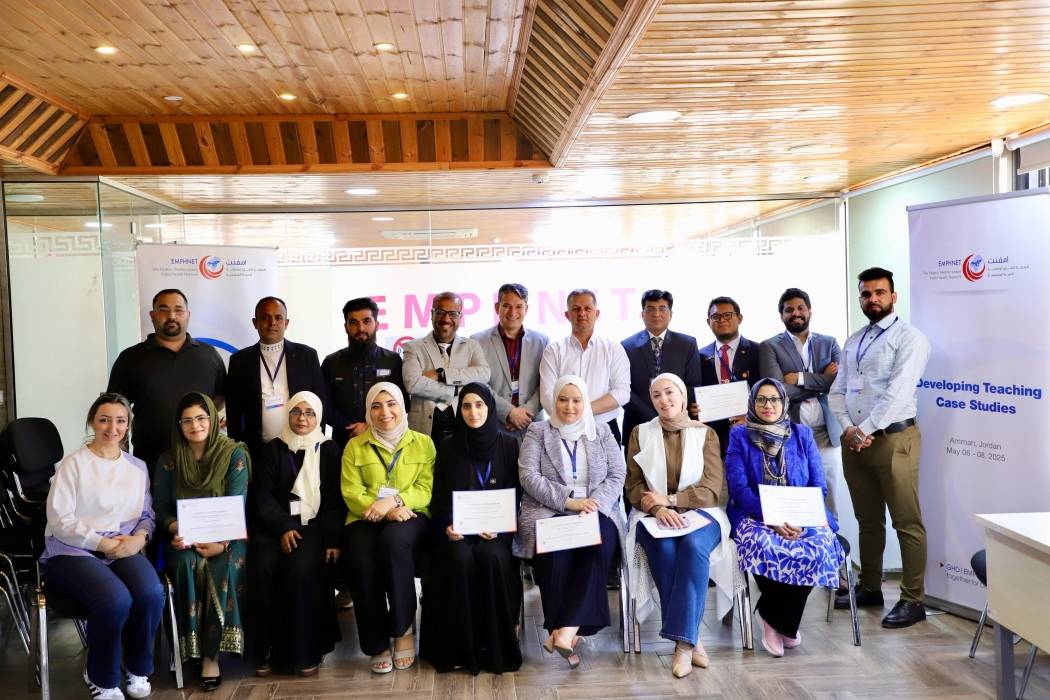- Local News
- Thu-2025-05-08 | 03:34 pm

Nayrouz News Agency :
Development for Field Epidemiology
Teaching case studies are an educational tool in public health that help learners examine real-world scenarios and develop critical skills. While case studies have been widely used and adopted globally, their use in the Eastern Mediterranean Region (EMR) is still limited. Despite the growing importance of case-based learning, locally relevant case studies remain scarce in the region.
To address this gap, a regional workshop on developing teaching case studies in field epidemiology and public health was held in Amman, Jordan, from May 6 to 8, 2025. Held by the Eastern Mediterranean Public Health Network (EMPHNET), the workshop brought together 15 participants from across the region, including primarily residents and graduates of Field Epidemiology Training Programs (FETPs), as well as public health professionals from ministries of health. These case studies are particularly valuable for FETPs, as they align with the programs’ focus on practice-based learning and provide participants with opportunities to further develop their skills through real-world public health challenges.
Preceded by online sessions introducing participants to foundational concepts such as writing learning objectives, understanding the structure of a teaching case study, drafting abstracts and background information, and exploring key themes like public health surveillance and outbreak investigation, this was an in-person workshop that offered more intensive activities.
The workshop allowed participants to develop a complete case study on a relevant public health issue, following structured formats and guidelines. In addition to building technical skills in case study development, the training focused on enhancing critical thinking, communication, and interpersonal skills—key competencies for public health professionals involved in education and capacity building.
This recent workshop builds on earlier efforts in the region to promote teaching case study development. Similar workshops held in past years have resulted in the publication of several case studies, now in use as part of FETP curricula and other public health training programs. By expanding the availability of practical, scenario-based learning tools, these initiatives collectively strengthen the region’s capacity for effective field epidemiology education.









